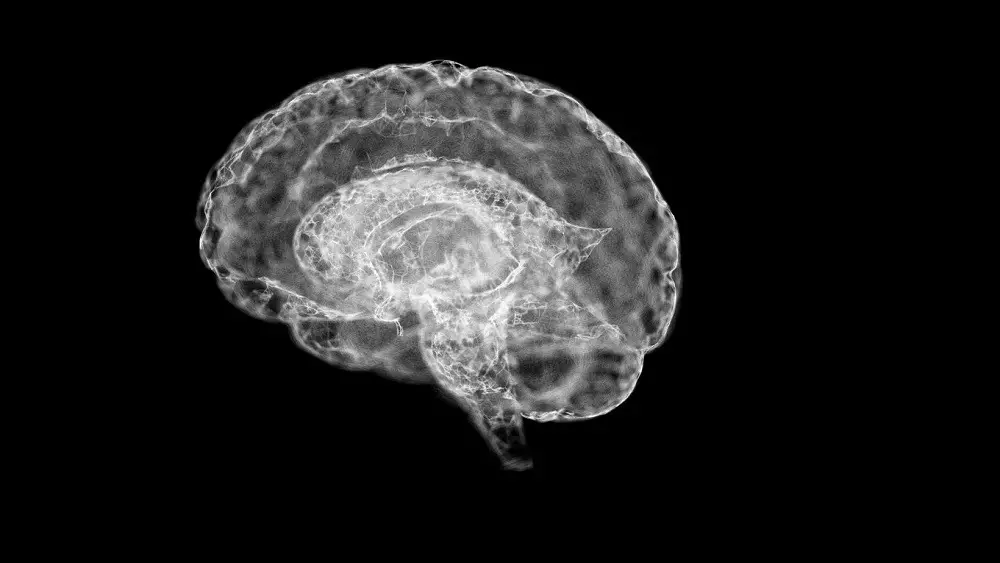Brain fog is not a medical diagnosis, but instead a general term that covers a wide range of symptoms. When you experience brain fog you will likely struggle to think, formulate ideas, and focus. It can leave you feeling confused, disoriented, and chaotic.
It can be massively detrimental to your quality of life and there are many ‘hacks’ on the internet claiming to cure brain fog. One of the biggest contributors to brain fog is dehydration. Our bodies are made of around 60% water, so it is clear that adequate hydration is vital to optimal brain and body health.

Why is hydration so important?
Your brain, body, and central nervous system cannot function properly if you are dehydrated. Your brain is composed of around 75% water, and will actually shrink in size when dehydrated. This is apparent even in mild cases of dehydration and has very obvious impacts on mood and brain function.
As little as a 2% decline in overall water levels in your body can cause problems with short-term memory, concentration, focus, and mental agility. If this is allowed to continue over time your cholesterol levels can increase, your heart rate can speed up, and you can exhibit symptoms of premature aging.
It is vital to consistently upkeep your water intake throughout the day. Every time we breathe, we expel water molecules into the air. More water is lost through sweat and pee, making a total water loss of around 2 liters per day. This means that we need to continually intake water to offset this natural loss.
Water is used as a highly effective energy source for the electrical functions of your brain. It is vital for transporting nutrients to the brain and diverting toxins away. This all impacts the level of concentration you can have and can impact brain fog.
How can you alleviate brain fog?
If dehydration is the root cause of your brain fog, you will be pleased to know that drinking water can help to reduce the symptoms in just 20 minutes. Dehydration can also cause headaches, likely due to the shrinking of the brain.
For optimal health, it is recommended that you drink a minimum of 2 liters of water per day. This will make your skin clearer and glowy. It will help with weight management, but most importantly, it can boost your mental function and clarity.
How do you know if you are dehydrated?
Aside from the headaches and brain fog, there are a variety of other symptoms that are brought on as a result of dehydration. These include a dry mouth, fatigue, dizziness, and muscle cramps.
You are likely to severely struggle with focus, constipation, sugar cravings, and mood swings too. As well as these, you should pay attention to your excretions. Constipation and infrequent peeing are clear indicators of dehydration. We also advise looking at the color of your pee when you use the toilet. If it is dark, this is your body screaming at you to drink more.
Different people will require different quantities of water. Your personal requirements will vary according to your activity level, dietary intake, age, and the climate that you live in. If you find yourself feeling starving, there is a strong chance that you may be dehydrated.
What are some simple ways to stay hydrated?
We advise taking a large glass of water to bed with you and placing it on your nightstand. When you wake up, the first thing that you should do is drink this water. Ideally, after this, you will have a second one to kickstart your hydration for the day.
Convenience is key, particularly in modern-day life. Keep a bottle of water with you at all times and ensure you are regularly sipping away on it. There are many bottles, such as this one, that have line markers for hydration goals by specific times of the day. This may help you to stay motivated to keep drinking.
If you are a caffeine addict, try to switch out 1 or 2 of your coffees for a large glass of water. Coffee, tea, soda, and other drinks will not provide your body with the same level of hydration as straight water. Many of these drinks are actually known as diuretics, meaning that they actually dehydrate your body.
Cold water is easier for your body’s cells to absorb than room-temperature water. If you are feeling dehydrated and want a quick hit, drink cooled water.
If plain water is not your jam, there are many ways to improve the flavor without adding in sugar or chemicals. Slice up a lemon, orange, or cucumber and add that to your water bottle along with some mint leaves.
Place it in the refrigerator overnight to chill and infuse. The next day, you will have a natural and delicately flavored drink to keep you hydrated all day long. During the summer, we love to add in a few frozen berries as a fun alternative to ice cubes.
What else can cause brain fog?
Stress can have a huge impact on our lives. It can cause your blood pressure to increase, can weaken the immune system, and negatively impact your mental health. It can also lead to a state of mental fatigue and brain fog.
This will not come as a shock to anyone, but sleep is vital for cognitive function. You should aim for between 8 and 10 hours every night to stay in good health. If you repeatedly get too little sleep this will quickly lead to cognitive decline.
Hormonal imbalances can also be a contributing factor to brain fog. This is particularly true for the female hormones estrogen and progesterone. Levels of these hormones increase during pregnancy which impacts your memory and cognitive function.
This is why many women report experiencing ‘baby brain’. During menopause, as the estrogen levels in the body drop, similar cognitive impairments are noticed. This can present as confusion, forgetfulness, and poor concentration.
